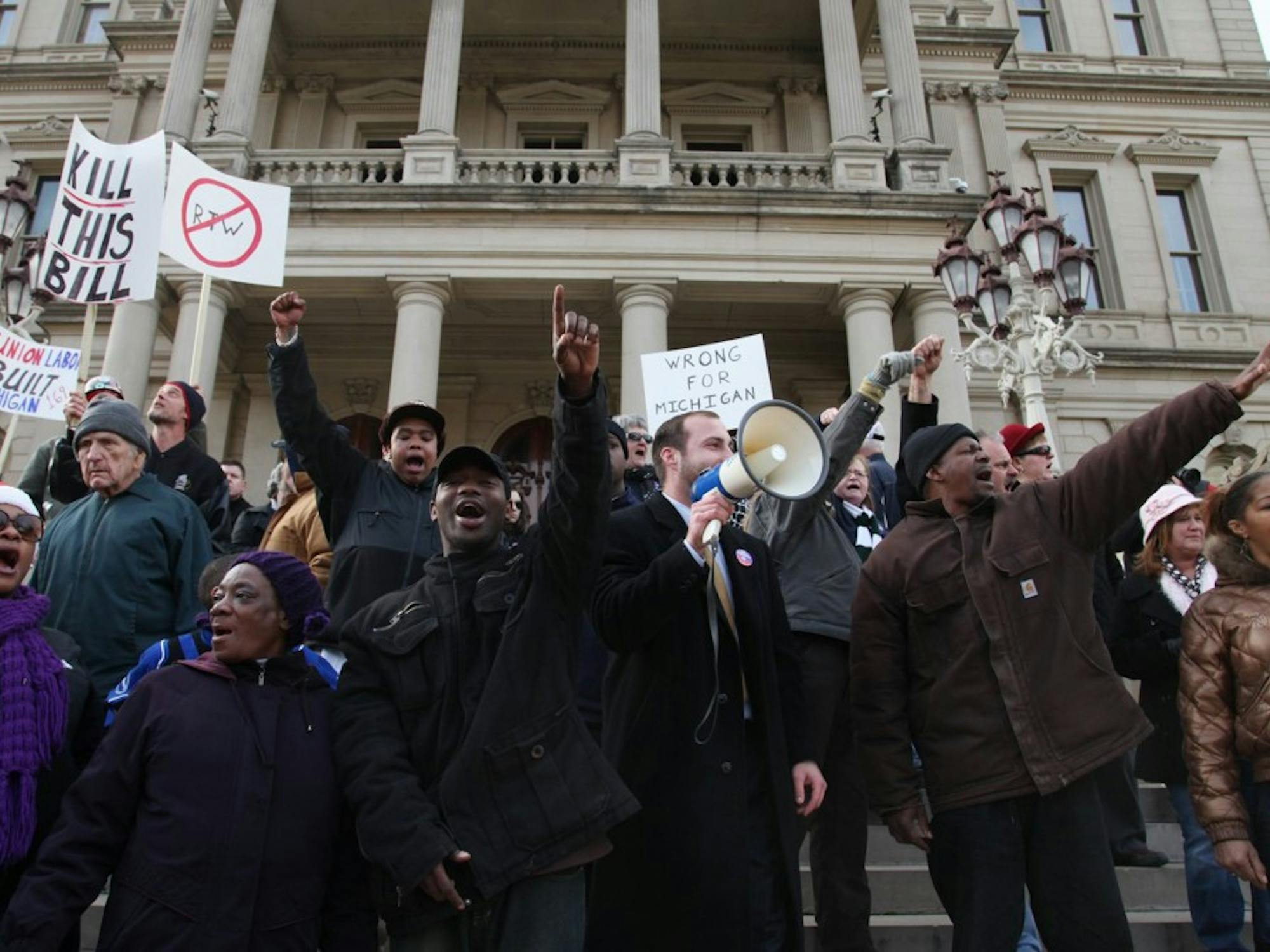Was it the political miscalculation made by Michigan’s labor movement to forward an amendment to the state’s Constitution that ultimately failed?
Or was it that state Republicans watched Wisconsin Republican Gov. Scott Walker do battle with his state’s labor movement and survive a recall election?
Who knows why, after years of insistence that it was not part of his plan, Michigan Republican Gov. Rick Snyder decided to force a right-to-work law at the end of the year.
Orwellian in title and content, RTW does not expand the rights of
workers.The law bans workers from being required to pay union fees as a condition of employment.
Gordon Lafer, an economist at the Economic Policy Institute, studied the topic, and in a report released in 2011 he detailed the detrimental effects of the law. For instance, employees in states with RTW are less likely to receive health insurance from their employers.
Statistically, union and non-union workers receive $1,500 less per year in RTW states, which is why I have always opposed RTW.
However, I have also felt it is also a matter of free association.
Why should workers be forced to pay union dues as a condition of employment?
There is no law that requires a worker to become a union member to be employed, but there are rules in certain businesses that require workers to pay union fees as a condition of employment. Most workers consider it ridiculous to pay the fees but not to be a part of the union, so they join.
The problem with RTW is it creates a freeloader dilemma. Workers who aren’t in the union still benefit from union negotiations for pay and benefits. And once individuals realize they don’t have to pay to play and they can receive the benefits without the cost, they end their support for the union. Eventually, the union collapses.
The law will weaken union power and is in itself an opportunity for state Republicans to enervate a political foe. That is why it has been so easy to demonize the labor movement. They have been seen as little more than an extension of the Democratic Party; a bête noire to the Republican Party and the Chamber of Commerce.
“This is all about taking care of the hard-working workers of Michigan, about being pro-worker, about giving them the freedom to choose who they associate with,” Snyder said in an interview with The New York Times.
If Snyder is serious about his desire for workers to be free to choose with whom they associate, then he should follow his push for RTW with a push for a state-level version of the Employee Free Choice Act. The Act would require that employers recognize a union if a majority of employees at a workplace sign documents indicating they wish to organize.
State Democrats and union protesters are powerless to stop RTW. Republicans control both the state House of Representatives and the state Senate, and they have used parliamentary tricks to expedite the process. The labor movement is not powerless to make the case for a more empowered workforce.
The desired outcome is not a supreme labor movement, but rather a healthy tension between business interests and the interests of workers.







